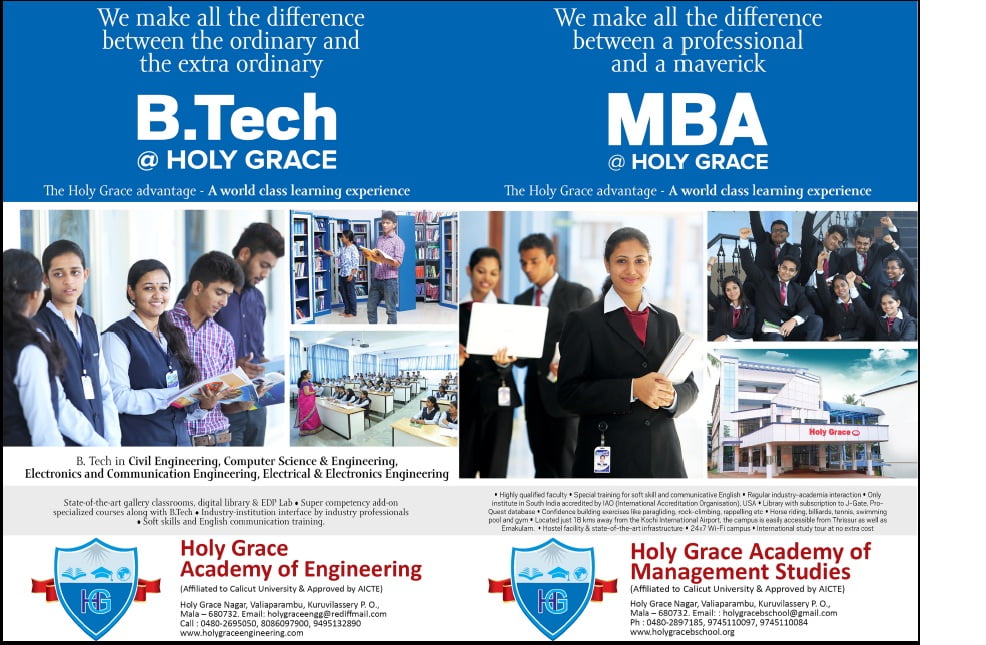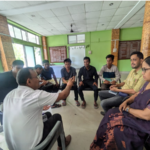The writer here discusses about the realm of engineering and its broader prospects.
Education is an essential need of every human being. It was born with the birth of the human race and shall continue to function as long as the human race lives. It is what provides us wisdom. Education is an essential human virtue. Man becomes ‘man’ through education. It has been rightly said that without education, man is a splendid slave, reasoning savage.Education brings into focus the social aspect of man.
Education signifies man’s supreme position in society. Technology is essentially the need of the hour. With the advancement of technology in today’s world, it is very important to keep a pace with it. It has already been witnessed previously, with every invention, a new technological pioneer appearing the human race has taken a gradual leap towards evolution. The revolutionary movement is the movement of technology, which has encompassed all the possible fields of our lives and has literary made the “impossible” well within our grabs, therefore making it “possible”. The sole reason for our luxury and comfort, something we very much brag about is practically due to the technological reason.
Engineering is a science involving designing, building and usage of machines, engines and structures. Pursuing an engineering degree is a popular career option in India. With the economy opening up over the last two decades, the steady growth of industries in the last few years, as well as the addition of streams within Engineering, students may have a variety of career choices.Engineering education is the practical solution to almost any kind of problem which holds the capacity to settle, prevent and preview any practical anomaly in an object. Therefore engineering is the answer to any predicament regarding scientific and technical working of tools.
Engineers are the builders and designers of the world. It is said that Engineering is not just a degree, but a way of thinking. Even though the number of Engineers in India has proliferated over recent years, the demand for good engineers has remained constant. The beauty of engineering is that it could not only open up avenues in diverse domains, but the remuneration could also be good. A degree in Engineering can open up multiple career avenues for students.The creation right from an invisible micro-organism up to the limitless space/ universe, covering all animate/ inanimate objects in-between can all be termed to be the result of Engineering science.
The Engineer is a professional, trained to create engineered systems for the benefit of mankind. He designs these systems, produces goods & services which help in socio-economic & human development in many ways. Try to think of it for a while. You cannot go through a day’s life without making use of things the engineer helps to create; namely starting from a needle you sew with to the sewing machine, from bicycle to the spaceship, the house you live in, the road & bridges you use, the car in which you travel, the fan or AC in your work place, the refrigerator in your kitchen, the watch on your wrist, the telephone & now cell-phone in your pocket, the radio or TV set in your living room & much more. The list is unending. All these systems are connected with the people’s lives, their economic prosperity, social well-being, recreation & over all happiness in a peaceful condition without strife & without damage to the natural environment. Thus engineer has a role not only to benefit the society but also in the designing of the society itself.
Engineers, by the very nature of their work, have a responsibility to society. In this role, they have extensive professional responsibilities & they have to address ethical dimensions of Engineering problems, designs & interactions. Students of Engineering should graduate with experience in working in teams, have strong written & oral communications skills & be well versed in the economic, social, environmental & international context of Engineering professional activities.
Engineering is one of the few professions where creativity meets. Originality, innovation and this explains its popularity.Engineering geologists can expect job growth of 21 percent between 2010 and 2020, according to the Bureau of Labour Statistics (bls.gov/ooh).Engineers have been responsible for the tremendous innovations and discoveries since time immemorial. Since Engineering involves concepts and reasoning, it can be a great choice for anyone who wants to leave a mark.
An Engineer should have curiosity and a bent of mind to discover something new. If you merely study science with the objective to score, do not find much interest in the experiments. The numerous applications possible through the formulas and concepts, it is unlikely that you would want to make a career in the same. Engineers must develop a fundamental understanding of their professional responsibilities.
The most effective mechanism is the personal involvement of each Engineer in integrating the topics of safety, welfare of the public, professional ethics, legal considerations, environmental responsibilities, quality and communications into the methodologies which all engineers use to approach and solve problems in the ordinary course of practice. This could be considered a natural extension of “Concurrent Engineering” in which the elements of design, manufacturing, and other issues are considered concurrently in engineering methodology. The concurrent methodology would include design for manufacturing, design for reliability, design for maintainability, design for assembly, design for environment, design for safety, design for economics, etc.
Engineers must weigh different design choices on their merits and choose the solution that best matches the requirements. Their crucial and unique task is to identify, understand, and interpret the constraints on a design in order to produce a successful result.It may not be a new message but it is one of ever-growing importance – Engineers are vital to our economy and society. Their knowledge and skills are in high demand across a range of sectors, from manufacturing to financial services and everything in between.
We think of Engineers as people who take discoveries from the sciences and use them to solve problems that change the world. Holy Grace aims to educate engineers who are also leaders, who understand the science of their solutions, of course, but who also understand the people, issues and systems they hope to affect.
Thus there is unlimited scope for innovation in engineering to help new unique enterprises. Proper manufacture of timber products, extraction of pharmaceutical products & perfumes manufacture of materials for handicrafts, horticulture industry, housing development. Institution building for education, mini, micro ¯o hydel power plants, computer software & hardware, manufacture of electronic goods & daily food products, developing quicker transport facilities, drainage, sewerage facilities, solid waste disposal schemes of towns & cities, sanitation projects, protection of water bodies disaster mitigation & management are a few in the long list of some Engineering tasks that will require professional engineering services.
During the past several centuries, the successive development of the printing press, wired and wireless communication, the internet have enabled the ubiquitous creation, shaping, and sharing of knowledge. One could argue that as a result of these developments, the capacity for universal participation in decisionmaking in politics and other spheres has risen to an unprecedented level, as has the potential for enhancing the quality of life for a broader segment of humankind. Today, a new world of robust communication lies before us, and it has all been made possible by the talents, skills, and dedicated work of Engineers. How we develop and use this capacity will determine our destiny.
We are entering an age of “distributed intelligence”–an era in which knowledge is available to anyone, anywhere, at anytime; in which power, information, and responsibility are moving away from centralized control to the individual. Over the span of just a few years, the size of computers has shrunk dramatically, from something that would fill a large air-conditioned room to something that fits on our desktop, in our laps or in our pockets.
To be successful and to promote prosperity, Engineers must exhibit more than first-rate technical and scientific skills. In an increasingly competitive world, they must help us make good decisions about investing enormous amounts of time, money, and human resources toward common ends. An Engineer not only knows how to do things right, but also knows the right thing to do. This requires that he or she have a broad, holistic background. Since engineering itself is an integrative process, engineering education must likewise be integrative.
Engineers know that scientific and mathematical skills are necessary for professional success. An engineering student nevertheless must also experience the “functional core of engineering”–the excitement of facing an open-ended challenge and creating something that has never been. Participating in the process of realizing a new product through the integration of seemingly disparate skills is an educational imperative.
T.D. Subash M.E., (Ph.D), MIEEE, MIPS, MEDS
HOD – Electronic & Communication Engineering
Holy Grace Academy of Engineering
Thrissur, Kerala







